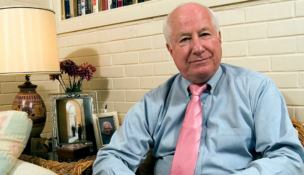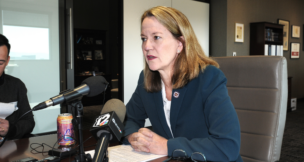AZ legislative salaries may be on ballot after 6-year hiatus
Jeremy Duda//June 23, 2014//[read_meter]
AZ legislative salaries may be on ballot after 6-year hiatus
Jeremy Duda//June 23, 2014//[read_meter]
 For the first time in six years, Arizona voters may get a chance to approve higher salaries for legislators.
For the first time in six years, Arizona voters may get a chance to approve higher salaries for legislators.
If history is a guide, any proposed increase in lawmakers’ salary of $24,000 a year, plus per diem, will be handily defeated. Voters haven’t approved a pay raise since 1998, when they raised the salary from $15,000 a year.
But voters haven’t had the chance to weigh in on legislative salaries since 2008. That may change this year.
In 2010, Gov. Jan Brewer blocked the biennial ballot measure by refusing to make her two appointments, including the chairman, to the Commission on Salaries for Elective State Officers, which decides whether to refer a pay raise to the ballot and how much of an increase to propose. At the time, Brewer said it was inappropriate to ask voters to increase legislative salaries while so many people were struggling financially.
It was the first time since 1984 that the issue wasn’t on the November ballot.
Two years later, Brewer made her appointments, but House Speaker Andy Tobin didn’t make his appointment to the commission, which deadlocked on a 2-2 vote.
But Brewer, Tobin, Senate President Andy Biggs and Arizona Supreme Court Chief Justice Rebecca Berch have all made their appointments, giving the commission a full roster for the first time in years. A spokesman for the Arizona Department of Administration said he expects a meeting to be scheduled for the last week of June.
Arizona’s economy has improved since 2012, when the state was still struggling to pull itself out of its post-recession funk. The two commission members who voted against the ballot referral in 2012 cited poor economic conditions as their reasons, including returning Chairwoman Lisa Atkins, who said the state’s economic situation is better now.
Three of the five members are holdovers from 2012. Brewer reappointed Atkins and Dennis Mitchem, while Berch reappointed attorney Joe Kanefield.
Tobin, who did not make an appointment in 2012, tapped Brian Kaufman to a seat on the commission. Senate President Andy Biggs appointed former state Sen. Karen Johnson.
Kanefield and Mitchem voted in favor of the ballot referral two years ago. Atkins joined with then-commissioner Bill Feldmeier in voting against the proposal, which would have asked voters to raise legislators’ salaries to $30,000 a year.
Atkins said she can’t determine how she’ll vote this year until she sees the proposal, which will come from a report drafted by ADOA. But she acknowledged that the economic climate is different than it was in 2012, when it led her to vote against referring a legislative pay increase to the ballot.
“I thought there was a lot of merit to that argument. But times are different. This is two years later,” Atkins said. “I do think the state’s economy has improved. I don’t know that that will be a factor this time.”
Kanefield said he would once again be willing to support a “reasonable” proposal to increase lawmakers’ pay. He questioned whether economic factors would once again lead other commissioners to oppose it.
“With the economy improving, I don’t think that argument is very compelling anymore,” he said.
At least one commissioner is skeptical. Johnson, who served in the Legislature for 12 years, retiring in 2009, said she doesn’t think lawmakers should be paid more.
“Absolutely not. No question about it,” Johnson said. “It was really, really hard for me when I ran. But you manage if that’s what you want to do. You don’t run for it if you want to make big bucks.”
Johnson said she likes that voters are the ones who get to decide how much lawmakers are paid. And she said she isn’t a definite “no” on a ballot referral. But she said it will be tough to convince her.
“I would absolutely listen to what they had to say. If they really made a great case, I would go along with it. But it would have to be a pretty darn good case,” Johnson said. “My mind is not closed. But it would be really hard to see how they would need more salary when the rest of the public citizens that they serve are struggling their heads off to make ends meet.”
Twenty-one states have higher legislative salaries than Arizona. A 2010 article in the Massachusetts-based CommonWealth Magazine listed the national average legislative salary as being just under $26,000 a year. The Economist cited a national average of $28,300 in a 2013 article.
According to a study by the National Conference of State Legislatures, the average salary for lawmakers in “hybrid” legislatures like Arizona’s, which it defines as part-time bodies where members spend more than two-thirds of their time doing legislative work, earn an average of $35,326 a year. Full-time legislators earn an average of $68,599, while part-time lawmakers earn an average of $15,984, according to NCSL.

















